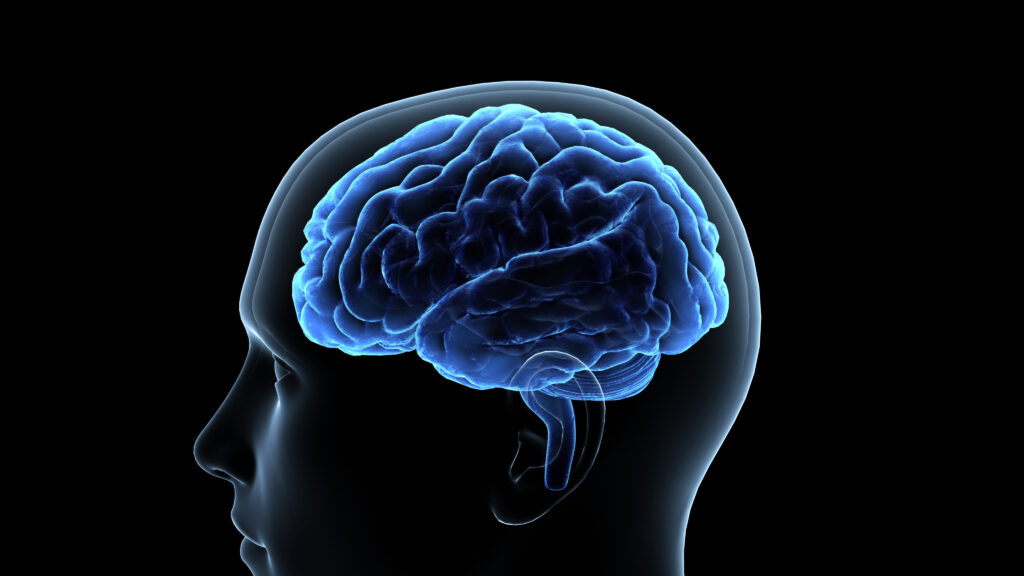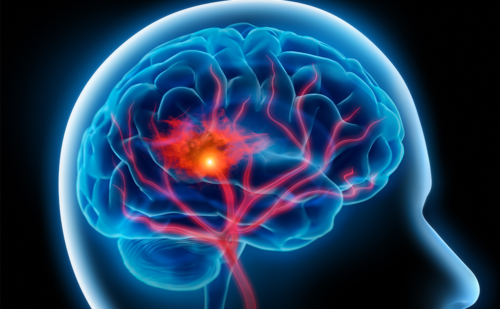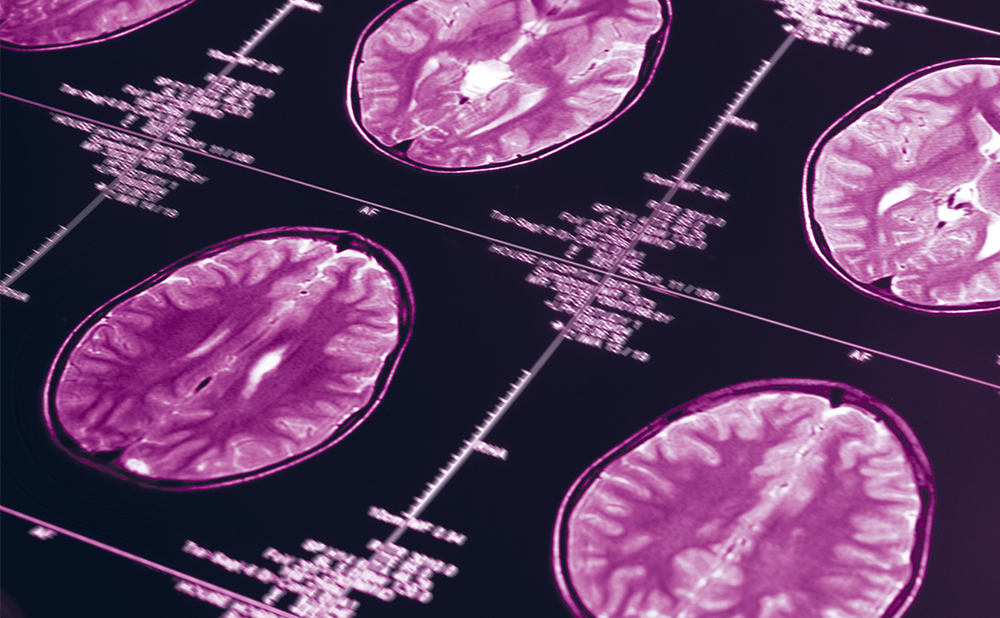Alzheimer’s disease (AD), with its insidious impairment of those most human of faculties – memory, reasoning, judgement and abstraction – exacts a great burden on each individual patient.1 A significant toll is also placed on care-givers – typically the spouse or daughter – as their relative becomes less communicative and more behaviourally disturbed.2,3 This toll is financial, with both direct and indirect costs4,5 as well as psychological6,7 physical,8 and emotional pressures.9
Alzheimer’s disease (AD), with its insidious impairment of those most human of faculties – memory, reasoning, judgement and abstraction – exacts a great burden on each individual patient.1 A significant toll is also placed on care-givers – typically the spouse or daughter – as their relative becomes less communicative and more behaviourally disturbed.2,3 This toll is financial, with both direct and indirect costs4,5 as well as psychological6,7 physical,8 and emotional pressures.9
Dementia, of which AD is the most frequent cause, is also responsible for significant usage of and expenditure on health and social care throughout Europe. It is estimated to be responsible for 11.2% of years lived with disability in people over 60 years of age, compared with 9.5% for stroke, 5.0% for cardiovascular disease and 2.4% for cancer.10 In Europe, the prevalence of AD increases exponentially with age.11,12 The incidence also increases with age,13,14 although perhaps with a plateau in extreme old age.15 There were an estimated 4.916 to 7.6 million17 western Europeans with dementia in 2001, and this could increase to 9.9 million by 204016 or even 16.2 million by 2050,17 driven by the ageing population.
In the UK alone, the total cost of care for late-onset dementia in 2005–2006 is estimated at £17.03 billion (€21.88 billion; US$29.89 billion), to which supported accommodation and informal care costs are the leading contributors.5 One estimate suggests that this cost will treble in the next 25 years.18 Across Europe, the total costs of care per person with dementia, adjusted to 2004 € level,19 range from approximately €6,000 in France20 to €19,500 in Finland.21 One report observes that the annual total costs of care per person with dementia are significantly greater for those in institutional care (€27,620 in 2002) compared with those cared for at home (€5,346 in 2002).22 In Scandinavia, the total annual costs in 2003 US$ were estimated to range from approximately US$7,500 in mild dementia to US$46,350 in severe dementia.21 Informal care costs account for roughly one-third of total costs, and increase markedly with advancing disease severity.21 Therefore, interventions that retard the progressive cognitive impairment of AD and maintain subjects at a higher functional level would be of great economic benefit to health and social care systems, as well as to patients and their care-givers. Thus, there is a growing consensus both nationally23,24 and across Europe25 that early diagnosis and treatment of dementia, including AD, would be beneficial for patients, care-givers and health and social care systems and should become the standard of care. This article reviews the evidence in favour of and against such a consensus.
Scale of the Problem
Despite the burgeoning numbers of people with AD and the spiralling emotional and financial costs associated with them, the disease remains substantially underdiagnosed26–29 and undertreated25,30 in primary care. Perhaps half of all cases of dementia are not diagnosed.5,31,32 Across Europe, there are variations in the time to diagnosis from first symptoms being noticed, ranging from 32 months in the UK to 18 months in Spain and 10 months in Germany.33 Variability is also apparent in the proportion of physicians recommending that treatment be commenced at the time of diagnosis: 51% in the UK, 78% in Germany and 86% in Spain.33 This correlates with the proportion of physicians who believe that treatment delays AD progression: 68% in the UK, 86% in Spain and 87% in Germany.33 Dementia is also under-recognised by other healthcare professionals in primary and community care.34,35 A lack of knowledge about dementia and the available therapeutic options, the assumption that memory loss is a feature of normal ageing, fear of social stigma30 and delay in consultation with a physician36 are among the patient- and care-giver-related barriers to early detection of AD.25 Therefore, significant efforts and investment are required to improve recognition and appropriate assessment of people with dementia in health and social care systems throughout Europe.23,30
Benefits of Early Detection
To the Patient and Care-giver
While many patients and care-givers present early to access pharmacological treatment, this is only one of many benefits, which include provision of diagnosis, information and education, counselling and community support, cognitive training and lifestyle advice.
Pharmacological treatment with the acetylcholinesterase inhibitors (AChEIs) donepezil,37 galantamine38 or rivastigmine39 provides symptomatic benefit in the mild to moderate stages of AD, with improvements in measures of cognition, function and behaviour.40,41 Commencement of therapy at an earlier stage aims to maintain cognitive and functional abilities at the highest possible level when impairments are mildest.42,43 Early commencement of AChEI therapy is supported by the observations that those subjects initially treated with placebo in the landmark randomised trials had worse cognitive and functional outcomes than those who initially received active treatment.44–46 Continuous AChEI therapy is supported by the observation that treatment gaps or ‘drug holidays’ allow symptoms to recur, with diminution or even loss of achieved cognitive gains.46 Delay in institutionalisation,47 improvement in AD patient behavioural symptoms and care-giver distress and burden48,49 and reductions in time spent providing care49–51 are further reported benefits of AChEI therapy.
The N-methyl-D-aspartate receptor antagonist memantine is licensed for use in moderate to severe AD. As healthcare systems and practitioners strive for early diagnosis, it is anticipated that more patients will be diagnosed at the mild stages of disease. However, at present the diagnosis may be made only at a moderate stage of AD. Therefore, the use of memantine, either as monotherapy or in combination with donepezil, may be appropriate at the time of detection.
Despite the continuing debate over the efficacy52 and costeffectiveness53 of AChEIs, there are a number of additional benefits of early diagnosis. First, the patient and his or her care-giver can be involved in discussions regarding diagnosis and prognosis,23 be advised on the help and support available from health and social care, as well as voluntary agencies,23,25,54 and make financial and legal plans for such a time that the patient no longer retains the capacity to make such plans.55 Early detection and treatment of dementia is associated with improved quality of life in patients.56 Second, care-giver counselling sessions, regular support group meetings and the availability of ad hoc telephone counselling, as described in the New York University – Alzheimer’s Disease Research Centre Caregiver Intervention, improve the physical57 and mental58 health of care-givers and delay institutionalisation of AD patients.59 A meta-analysis of studies of care-giver interventions also suggests that psychosocial interventions for care-givers reduce care-giver psychological morbidity and delay the institutionalisation of AD patients.60 Such interventions to support care-givers are strongly supported by the observations that the presence of a co-resident care-giver is strongly protective against patient institutionalisation61,62 and that the absence of a care-giver or significant care-giver stress increases the probability of institutionalisation.61 Third, early provision of community support services reduces institutionalisation.63 However, many care-givers do not use community support services despite poor quality of life and high levels of burden.64 Reluctance to use services may be due to denial of need, fear of invasion of privacy or refusal by the patient.64 Lack of knowledge about available services is also common.64
Fourth, there is an emerging evidence base in the literature to suggest that cognitive training or rehabilitation improves outcomes in patients with dementia. One large study involving over 2,800 subjects that investigated three separate interventions on memory, reasoning or speed of processing reported that the targeted ability was improved by each intervention.65 This effect persisted for up to five years following the intervention.66 However, a Cochrane review of nine trials previously concluded that there was no evidence that cognitive training had either positive or negative effects.67 The combination of cognitive training or rehabilitation with AChEI therapy has also been reported to have significant benefits in cognition, mood and behaviour.68–70 Other small studies suggest beneficial effects of cognitive stimulation71 and computer-based cognitive intervention72 on cognition, behaviour and function. A five-week programme delivered by occupational therapists in the community improved daily functioning of patients with dementia and care-giver burden at 12-week follow-up.73 The programme consisted of cognitive interventions to train patients in the use of aids to compensate for cognitive decline together with behavioural interventions for care-givers in coping and supervision.73 Improvements in the quality of life and health status of both patients and care-givers were noted.74 The intervention was cost-effective, with an estimated saving per patient and care-giver of € 1,748 (£1,279; US$2,641) over three months.75 Fifth, observational and prospective data suggest that physical activity is associated with a reduced prevalence of the subsequent development of dementia, including AD.76–78 AD has adverse effects on physical health, with a higher risk of falls and fractures,79–81 reduced mobility82,83 and poor nutrition.84 A meta-analysis of 30 studies including 2,020 subjects found that exercise training had significant benefits in terms of fitness, physical function, cognition and behavioural symptoms in people with dementia.85 One randomised controlled trial combined an exercise programme for patients with AD with behavioural management training for their care-giver, and reported improved physical health and mood in patients with AD.86
Finally, despite recent disappointing results of clinical trials testing several putative disease-modifying treatments for AD,87–89 there have been some encouraging reports too.90,91 Several additional agents are in evaluation in phase II and III clinical trials. To maximise the therapeutic gain from any successful agent in the future, the development of specialist memory services with the capacity to detect AD at an early stage within health and social care systems will be crucial.23,25 Compelling data in the literature support the role of vascular risk factors in AD, such as hypertension,92 smoking93,94 and diabetes.95 However, as yet there is no convincing evidence of any benefit of modification of such factors on cognitive outcomes.96
To the Health and Social Care System
The benefits to patients with AD and their care-givers of the interventions described in the previous section will additionally benefit health and social care systems. Reductions in or delays to institutionalisation and improved physical and mental health and quality of life of both patients and their care-givers will result in better public health and, potentially, lower costs.24,56 In the UK, health economic calculations estimate that only a modest increase in average quality of life (around 0.01–0.02 quality-adjusted life-years [QALYs]) together with a reduction of 10% in institutionalisation would be required to make the introduction of early diagnosis and intervention services in dementia cost-effective.23 A pilot study to establish such a service, assessing newly diagnosed patients at an early stage of their disease, was feasible and acceptable to patients.56
Recently published guidance from the National Institute for Health and Clinical Excellence (NICE) in the UK recommends implementation of occupational therapy schemes and physical activity for all older people and their carers, together with training of health and social care staff, domiciliary care workers, residential care staff and voluntary workers to improve mental wellbeing.97 However, it was not possible to estimate the cost-effectiveness of this guidance nationally.97 The guidance will have an impact on people with AD and their care-givers.
Further Issues in Early Detection
To Individuals and Their Care-givers
It has been suggested that the early detection of dementia has associated risks that must be addressed in the establishment of memory services.98 False-positive diagnosis or increased referrals to specialist memory services may increase time to assessment and cause distress.99
AChEI therapy has well-established dose-related gastrointestinal and other side effects40 to which individuals may be exposed. As previously noted, the diagnosis or ‘label’ of dementia or AD still carries a social stigma. Additionally, patients who are told their diagnosis at an early stage of the disease may experience adverse outcomes, such as reduced self-esteem and impaired quality of life.100 The perceived benefit of financial or legal planning may lead to inappropriately early loss of control over the patient’s own affairs.101 Care-givers may be exposed to the potential stresses involved in caring for the patient at an earlier stage of the disease. Many care-givers do not interact with support services64 or do not view the offered services as effective. Information about the diagnosis, prognosis and services available is inconsistent.102 Patients with AD continue to drive after receiving the diagnosis, although regulations mandate that driving stop.103 Regulations and guidelines vary across Europe.104 Assessments by physicians105 and neuropsychological testing106 are not sufficiently accurate to determine driving ability. Individuals with AD may stop or be required to stop driving sooner than is necessary from safety considerations. This limits contact with family, friends and services and is predictive of institutionalisation.107,108
To Health and Social Care Services
Increased workload for health and social care services would be expected from a strategy of early detection of dementia, including AD.4,98 Greater numbers of older people will require assessment, and support will have to be provided to more people for a longer time.98 Also, resources will be required to manage those people for whom the process of early detection is deleterious.98 Within primary care, barriers exist to the greater role in providing information and support and monitoring of drug therapy that will result from early detection of AD.109 The same physicians who under-recognise dementia find disclosure of the diagnosis the most arduous.28 Training and education of primary care practitioners will be required to improve competence in these and other areas and to reverse nihilistic attitudes.102,110
Conclusion
Early detection of AD has a number of benefits to patients, their care-givers and health and social care systems. Patients and care-givers receive timely information on the diagnosis and prognosis of the disease and the available support services from both health and social care and voluntary agencies. Counselling services, lifestyle advice, cognitive training and pharmacological therapy may all maintain cognition and function, thereby delaying institutionalisation. Health and social care systems will benefit financially from early detection of AD and delay in institutionalisation. Some risks in the adoption of an early detection policy have been described. These should be addressed in the design and functioning of services to improve the early detection of AD and dementia to the growing number of older people, and their care-givers, throughout Europe. ■
This article was funded by an educational grant from Eisai Europe Ltd.














